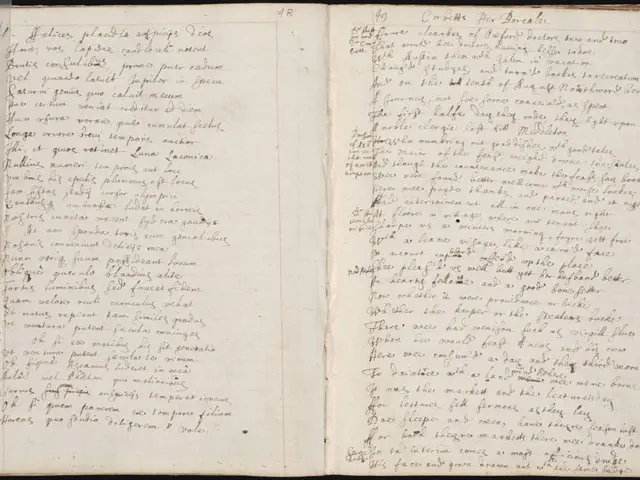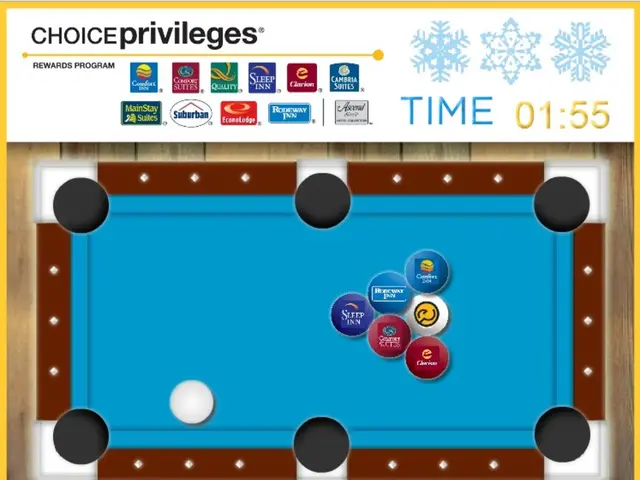Initiating conversation aimed at mobilizing Trump for campaign appearances
In an upcoming video conference, European leaders, including the heads of state and government from France, the UK, Italy, Poland, Finland, European Commission President Ursula von der Leyen, European Council President António Costa, NATO Secretary-General Mark Rutte, and Ukrainian President Volodymyr Zelensky, will meet with US President Donald Trump to discuss the ongoing conflict between Ukraine and Russia.
The meeting is scheduled to take place on a yet-to-be-revealed date and time, with Vice President JD Vance also expected to participate. The exact agenda for the video conference has not been publicly released, but based on past events and recent developments, several topics are likely to be discussed.
President Zelensky has expressed confidence that a three-way meeting between Trump, Putin, and himself will take place to end the war. However, so far, Trump has not made promises for security guarantees for Ukraine after a possible ceasefire or even a peace agreement. European leaders are concerned about potential territorial concessions from Ukraine to Russia in the meeting between Trump and Putin.
The goal of the video conference is to find a common line with Trump before his meeting with Russian President Vladimir Putin in Alaska. The talks are expected to focus on further options to put pressure on Moscow, as well as preparations for possible peace negotiations and related questions of territorial claims and security.
Trump has portrayed the planned meeting with Putin as an attempt to move towards an end to the almost four-year-long Russian invasion of Ukraine. German Foreign Minister Johann Wadephul has stated that violence must not shift borders and that Germany supports Trump’s goal of ending the Russian war of aggression. British Prime Minister Keir Starmer has called for security guarantees for Ukraine.
In a previous summit without Ukraine or European leaders, Trump indicated that Zelensky and European states "have to get involved a little bit," suggesting pressure for a trilateral engagement. European leaders have expressed solidarity with Ukraine and indicated interest in a trilateral summit involving Trump, Putin, and Zelensky.
Zelensky has warned that if Ukraine gives up its positions in the Donbass, Putin's troops could advance towards Kharkiv, Zaporizhzhia, and Dnipro in the future. Trump has hinted at a possible land swap between Ukraine and Russia, but has also stated that he won't make a deal.
After the summit, Trump is expected to inform the Ukrainian President and European heads of state and government directly about the conversation with Putin. German Chancellor Friedrich Merz plans to inform the public after the Trump video conference in a press conference.
References:
[1] ABC News. (2025, August 15). European leaders concerned about exclusion from Alaska summit discussions on Ukraine’s future. Retrieved from https://abcnews.go.com/International/wireStory/european-leaders-concerned-exclusion-alaska-summit-discussions-ukraines-77096210
[2] Reuters. (2025, August 16). European leaders show solidarity with Ukraine, hint at potential trilateral summit with Trump and Putin. Retrieved from https://www.reuters.com/world/europe/european-leaders-show-solidarity-ukraine-hint-potential-trilateral-summit-trump-putin-2025-08-16/
- The European Union, concerned about potential territorial concessions from Ukraine to Russia and the exclusion from the Alaska summit discussions on Ukraine’s future, is committed to a comprehensive policy on the environment, politics, general news, and the ongoing conflict between Ukraine and Russia, focusing on maintaining Ukraine's territorial integrity and security.
- While President Zelensky and European leaders have expressed interest in a trilateral summit involving Trump, Putin, and Zelensky to end the war, European leaders are also preparing for the upcoming video conference with Trump, aiming to find a common line and discuss further options to put pressure on Moscow and related questions of territorial claims and security, as war-and-conflicts remain a crucial aspect of their policy on the environment, politics, and general news.








